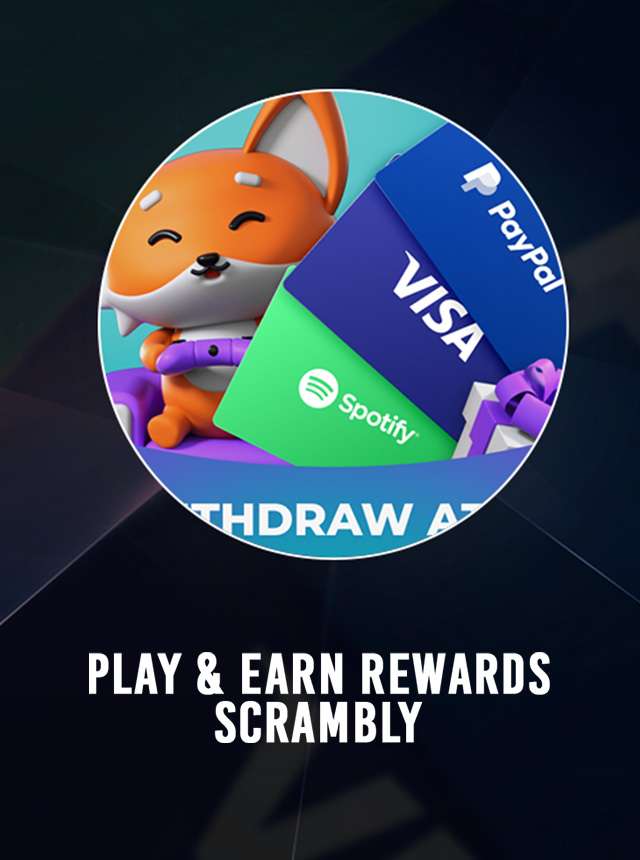Explore the future of gaming with play to earn rewards and limitless opportunities
Explore the future of gaming with play to earn rewards and limitless opportunities
Blog Article
Exactly How Play-to-Earn Benefits Are Changing the Gaming Experience
The arrival of Play-to-Earn rewards marks a substantial advancement in the pc gaming landscape, shifting the focus from plain home entertainment to genuine economic participation. This transformation welcomes players to spend not just their time yet also their monetary sources, fostering a feeling of ownership and much deeper engagement within video game communities. As varied demographics accept these opportunities, new areas arise, obscuring the lines between leisure and investment. Yet, this shift increases crucial inquiries about sustainability and the future of video gaming. What ramifications could this have for the industry and its gamers?

Advancement of Gaming Versions
The landscape of video gaming has undertaken a substantial change over the decades, developing from conventional pay-to-play designs to a lot more cutting-edge structures that prioritize user engagement and money making. Games were primarily marketed as standalone items, calling for in advance settlements for gain access to. This design, while reliable in producing revenue, often limited gamer communication and area structure.

Recently, the increase of blockchain innovation has presented play-to-earn systems that fundamentally change video gaming characteristics. These versions not just offer a platform for gamers to make benefits however likewise democratize the video gaming economic situation, enabling individuals to own in-game assets. This advancement shows a broader pattern in the direction of community-driven experiences, where programmers and gamers team up in shaping the pc gaming landscape, inevitably redefining how value is perceived in the pc gaming market.
Benefits of Play-to-Earn Equipments
Opening new methods for player involvement, play-to-earn systems use an array of benefits that basically enhance the gaming experience. These systems encourage players by giving substantial benefits for their time and effort, cultivating a sense of ownership and financial investment in the video game. This innate inspiration drives gamers to engage even more deeply, checking out video game auto mechanics and areas that they may otherwise forget.
In addition, play-to-earn models equalize pc gaming by leveling the having fun field. Gamers from various histories can profit from their skills and creative thinking, enabling new participants to experience monetary advantages that were generally reserved for programmers and authors. This change motivates a more diverse gamer base, enhancing the gaming ecological community with varied perspectives and experiences.
Additionally, play-to-earn systems advertise neighborhood structure, as gamers work together and complete within decentralized atmospheres. This communication cultivates social links that improve satisfaction and retention, as players feel a feeling of belonging.
Last but not least, these systems can bring about increased long life for games, as regular gamer engagement usually converts right into continual rate of interest and investment in future versions or expansions, ensuring a vibrant pc gaming landscape.
Economic Impact on Players
Play-to-earn systems not just boost gamer engagement but also visit site have substantial economic implications for individuals included. These systems allow gamers to monetize their time and abilities, changing gaming from a recreation right into a sensible income source. As gamers gain copyright or in-game assets that can be traded or sold in real-world markets, they get financial incentives that can substantially impact their individual economic climates.
The economic model fosters a new age of entrepreneurship, as gamers can spend in different video gaming ecological communities or create approaches to maximize their profits. This potential for revenue generation brings in a diverse market, consisting of those in areas with restricted task possibilities - play to earn rewards. As a result, several gamers are now viewing pc gaming not simply as amusement but as a path to monetary empowerment.
However, it is vital to acknowledge the volatility linked with cryptocurrencies and the potential for market variations to impact revenues. Gamers have to browse these dangers while balancing their pc gaming and financial tasks. In general, the economic effect on gamers is extensive, improving their connection with gaming and opening up avenues for wealth creation in a progressively electronic economic situation.
Area Building in P2E Games

Gamers in P2E environments frequently create guilds or alliances, creating networks that facilitate resource sharing, critical planning, and shared assistance. These groups usually take part in cooperative missions or competitions, even more reinforcing their bonds and improving the general pc gaming experience. In addition, community-driven occasions, such as competitions and social gatherings, serve to unite players, foster friendship, and incentivize involvement.
In addition, designers actively engage with their neighborhoods, incorporating comments and recommendations that form video game advancement. This collective approach not only empowers players yet additionally guarantees that games develop abreast with player interests, boosting contentment and long-term involvement. Inevitably, neighborhood structure in P2E video games is not simply a feature; it is a foundational element that changes the pc gaming landscape into a much more inclusive and interactive environment.
Future Patterns in Video Gaming
The video gaming industry's advancement is poised to accept a number of transformative fads that will redefine gamer interaction and experience. One of the most significant patterns is the combination of man-made knowledge (AI) to create more individualized gaming atmospheres. AI can assess gamer behavior and choices, enabling developers to tailor experiences that reverberate deeply with specific users.
Moreover, the introduction of virtual and enhanced reality (VR/AR) technologies is set to boost immersion, supplying players the capability to interact with digital globes in extraordinary means. This will not just boost gameplay but also foster social links, as players can work together and contend in shared atmospheres.
Additionally, the surge of blockchain technology will continue to influence the pc gaming landscape, enabling true ownership of in-game assets with non-fungible tokens (NFTs) This fad will encourage players to trade and monetize their gaming experiences, additionally obscuring the lines in between gaming and investment.
Conclusion
By incorporating financial incentives into gameplay, gamers are progressively involved, promoting a feeling of ownership and financial investment in electronic environments. As these fads continue to develop, the blurred lines between home entertainment and financial investment will likely redefine the future of video gaming, forming new experiences for gamers worldwide.
Report this page